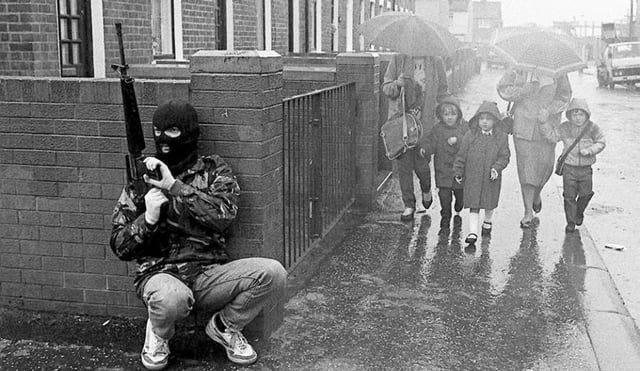What happens after Charlie Kirk?
The killing of a political commentator may mark the moment America stopped being insulated from the grip of ideological violence.

Not that long ago, American families would gather around the television to watch the evening news. Local stories would lead, followed by national headlines, followed by a breathless, minute-long segment of cursory international news, often with a countdown timer in the corner to signal this painful 60 seconds would soon be over.
If anyone was paying attention, they would have registered the car bombs in Kinshasa, assassinations in Islamabad, sectarian violence in Jerusalem, or hijackings in Frankfurt. But no one did, because this was just the kind of thing that happened “elsewhere.”
America the safe haven is now long gone. Political violence, once the exclusive domain of ‘less developed’ places, is now par for the course here. What once felt like the preserve of ‘fragile states’ or ‘unstable democracies’ has taken root in American soil.
The past year alone has brought firebomb attacks, mob assaults, lawmakers gunned down in their homes, governors targeted by arson, embassy staff murdered, fertility clinics bombed, ICE agents ambushed, Tesla dealerships torched. And now, the shooting of Charlie Kirk — a political commentator whose slaying risks becoming a flashpoint in a season already thick with violence. His death marks a turning point in the idea that you can speak your mind without fear of being gunned down.
Turns out, we’re now all Charlie Kirk.
Because, if Charlie Kirk can be targeted and killed for what he said, then anyone can be. Not just public figures, but ordinary people… Substackers, TikTok pundits, Instagram posters — punished for words and images that land the wrong way in the mind of someone whose entire worldview is preloaded for violence and vengeance. And in a country as fractured as America is right now, every word is ‘wrong’ to someone.
When violence stops being the exception and starts becoming the texture of daily politics, that’s thirdworldization. When institutions can no longer protect expression, when differences are settled with guns, fire, and mobs, we watch the civil part of civil society skulk away.
The haunting question is whether America crossed that line yesterday, given that the prerequisites for collapse are already here: polarization, violence as speech, fear as governance.
Not that long ago in America, you might have heard people say: “That would never happen here.” Today, the uncomfortable truth is that this nation is no longer insulated from the grip of ideological violence. Watching the brutality of ‘uncivilized’ places on the TV news is a luxury we no longer enjoy. Gone with it is our national self-worth, our status and standing as a nation set apart by its founding principles, and our recognition of the spark of humanity in each and every person.
Other nations have stumbled down this path before: Lebanon in the 1970s, Northern Ireland during ‘the Troubles,’ Colombia in its decades of gory assassinations. None of them thought they were entering an age of normalized bloodshed until, suddenly, they were living it.
Europe in the 1930s offers another distinct echo. Before World War II broke out, street brawls, bombings, and targeted killings became daily events in Berlin, Rome, and Madrid. Even before all-out war began, the lines between words and weapons had already collapsed.
And, as the 1930s proved, a spark is all that’s needed to set dry tinder ablaze.


This isn't something surprising. This type of violence has been encouraged for years now.
We have had DAs funded for years that actively release violent offenders. Both our prior President and Vice-President were involved in raising funds to keep releasing violent "protesters".
The mainstream media coverage paints these actors as righteous and just and blames the victims as having incited them.
Words that people don't want spoken are equated with violence and justify violence in return.
The reporting of crime has been skewed to hide the increase in violence.
If we speak up about the actors, we are labeled as intolerant or just gaslit that it is happening at all. If we defend ourselves we are systematically punished.
Any time we vote for people that go against this narrative, they are labeled as "far right extremists".
This isn't limited to the US. It is happening in many other countries as well and spreading.
Folks would do well to review their history and understand Operation Gladio which is the collective name for a notorious Cold War-era program whereby Anglo-American intelligence services and NATO, in conjunction with mafia elements and fascist paramilitaries, constructed a pan-European nexus of clandestine “stay behind” armed resistance units.
Eliminating political enemies while keeping the domestic population in a state of constant agitation and uncertainty is the goal.